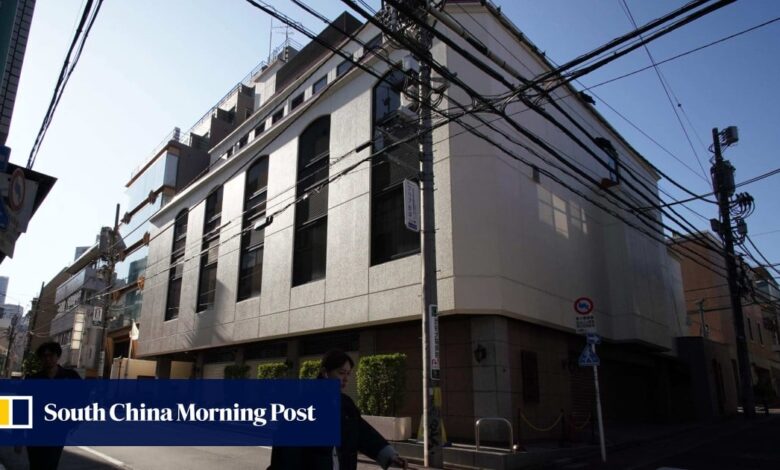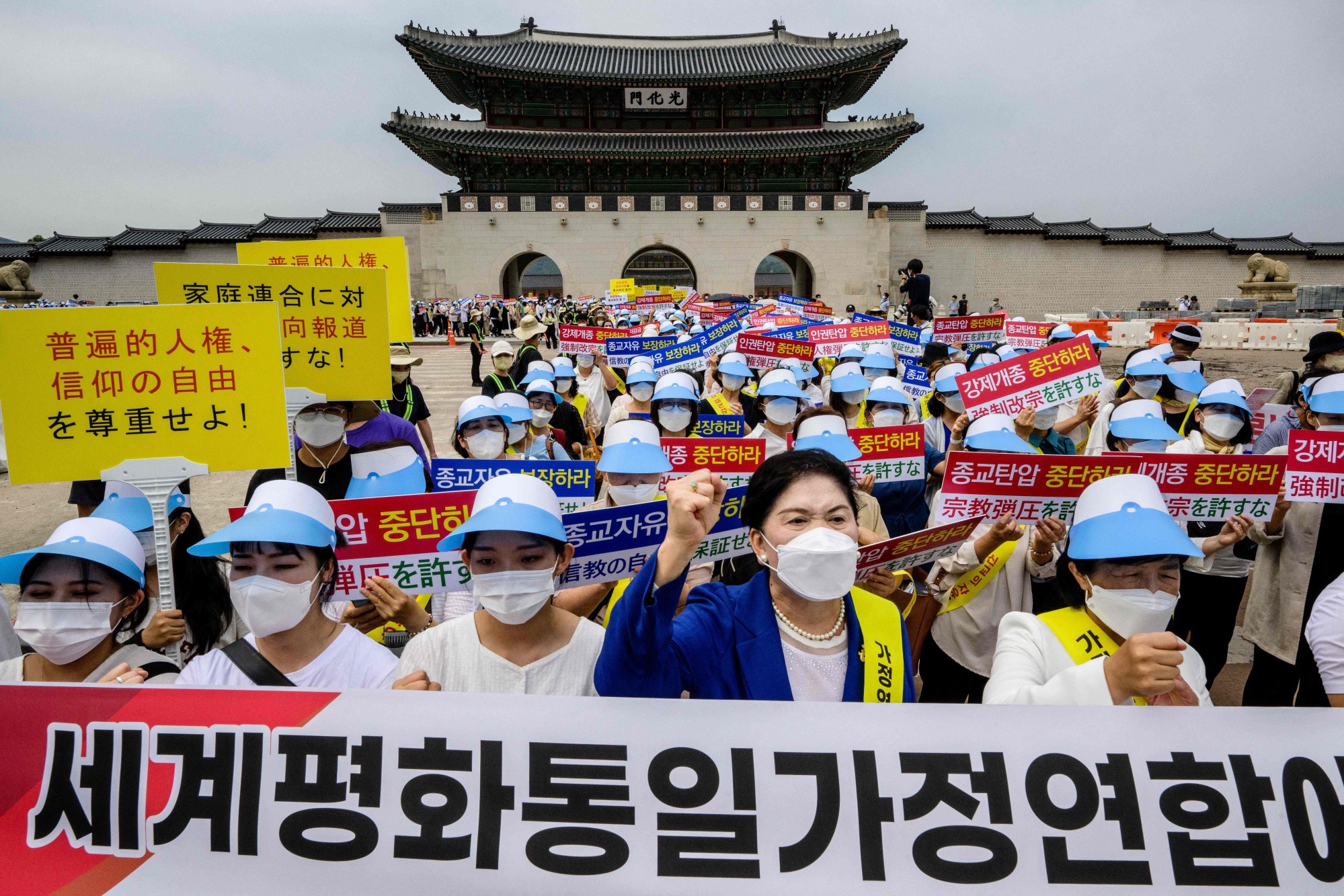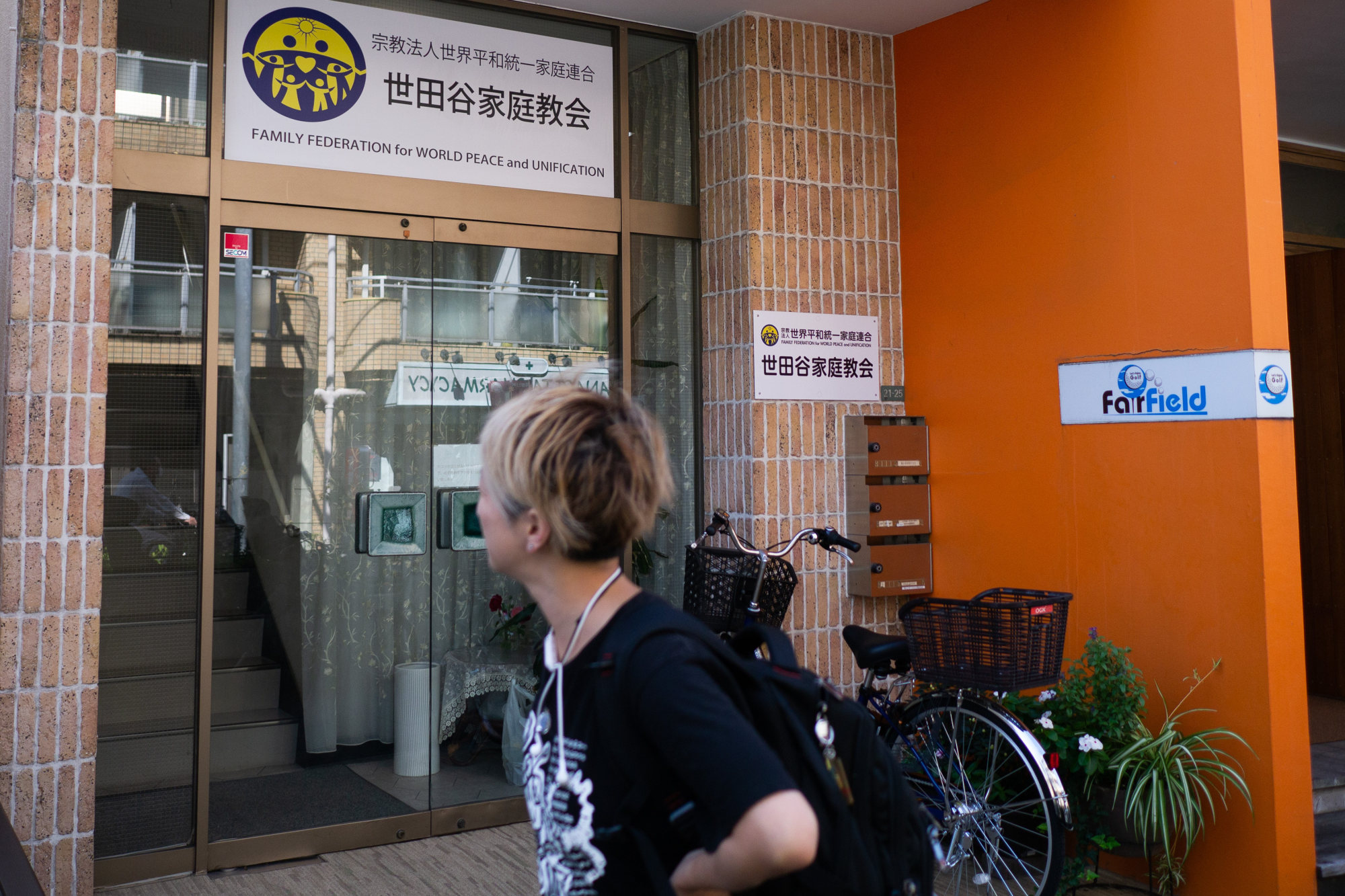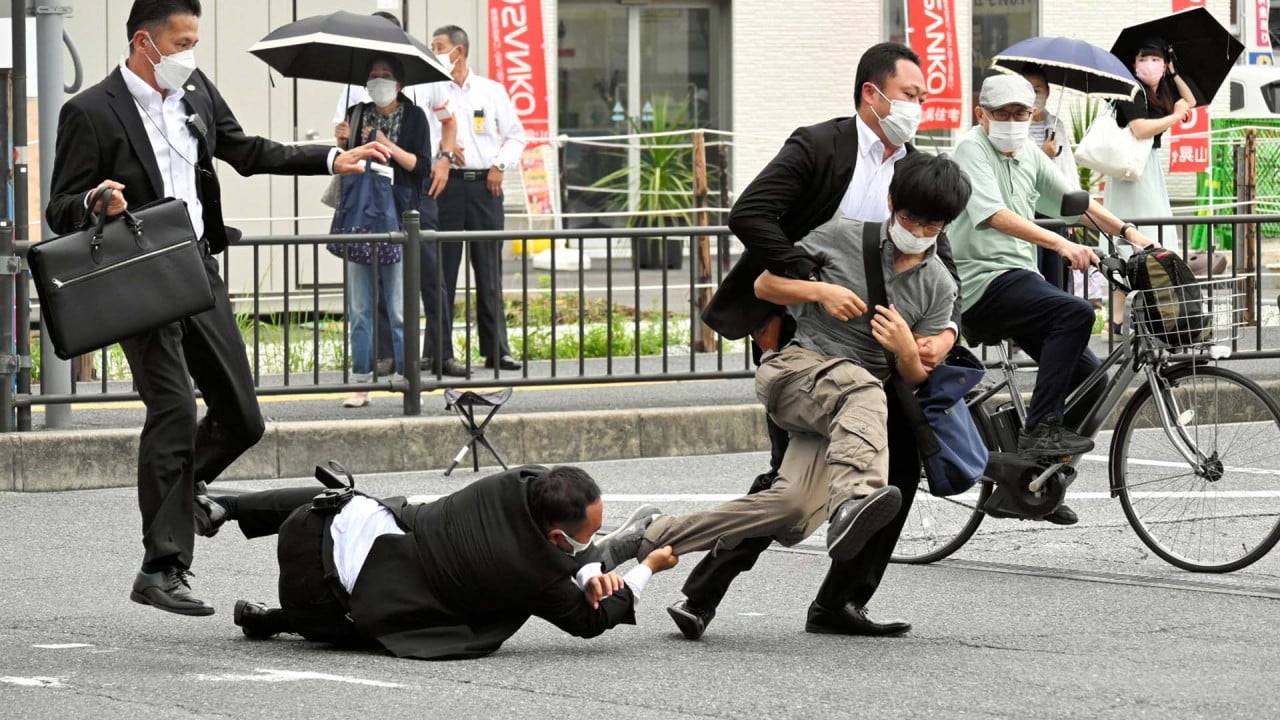Unification Church accuses Japan of ‘bias’, vows to fight on as disbandment looms

[ad_1]
Japanese lawmakers on Friday filed a request with the Tokyo District Court to formally disband the controversial Unification Church after about a year of investigation, even as the religious organisation vowed to fight the request and “make our legal claims in court”.
If the court backs the government’s request, the church – whose formal name is the Family Federation for World Peace and Unification – will lose its legal status as a religious corporation and be deprived of tax benefits. But the church will not be required to halt its religious operations in the country.
“The vast majority of Japanese people believe this is the appropriate decision because we have seen all sorts of information about the church coming out in the media in the last year or so,” said Hiromi Murakami, a professor of political science at the Tokyo campus of Temple University.
The more people hear, the more they think the Unification Church should be held responsible
“People have been shocked, stunned about everything that has emerged about the group since the assassination of [former Prime Minister Shinzo] Abe last year,” she said. “The more people hear, the more they think the Unification Church should be held responsible.”
The church said it was “extremely disappointed” with the government’s decision to submit the request, accusing it of acting on “biased information from a left-wing lawyer group established with the purpose of destroying this organisation”.
The church was referring to the National Network of Lawyers Against Spiritual Sales that has been representing claimants against the church since 1987, but has received little media coverage given legal threats and pressure from the church.

But public awareness of the lawyer group grew after Abe was shot dead in July last year while on the campaign trail in Kobe city.
The alleged gunman said he shot Abe because Abe’s grandfather – former prime minister Nobusuke Kishi – had helped establish the church in Japan. He also said his family had been bankrupted after the church pressured his mother into giving away all their savings.
Since 1987, the group has filed 34,818 lawsuits against the church on behalf of people who say they were pressured into giving it money, with total damages of some 128 billion yen (US$856 million).
The church, founded in South Korea in 1954, has faced complaints for decades about followers being pressured into making large financial donations to the church or convinced to buy church-approved items, such as books or statuettes, for vast sums.

Although the lawyer group “appreciates” the government’s dissolution request against the church, the move came “too late”.
The group urged the church to “sincerely address the past harms” it caused, to apologise and compensate victims. It also urged the government to preserve the group’s assets so they cannot be concealed or disposed of.
The church “continues to show no attitude of sincerely confronting the victims” and has instead filed lawsuits against the lawyers’ group, critics of the church and even local governments, the group said.
The group’s statements are similar to the difficulties faced by the government’s Agency for Cultural Affairs that began to investigate the church in October last year. The agency has concluded that the church engaged in repeated malicious and illegal acts.
Some people expect a long and drawn out legal battle as the church promised to fight on.
“I think most people expected that,” Temple University’s Murakami said. “I imagine this will go all the way to the Supreme Court and take many years.”
Perhaps the most surprising thing, she added, is the number of people who still follow the religion, despite all the revelations about its tactics and treatment of followers.
“It reminds me of Aleph, which is what is left of the Aum Shinrikyo cult, which released sarin nerve gas on the Tokyo subway system in 1995,” she said.
There remains dozens of people today who swear allegiance to Shoko Asahara, the self-proclaimed guru of the cult who was executed in 2018 for a litany of crimes, including masterminding the sarin attack and a total of 27 counts of murder. Aum Shinrikyo was stripped of its religious status after the attacks.
[ad_2]
Source link


